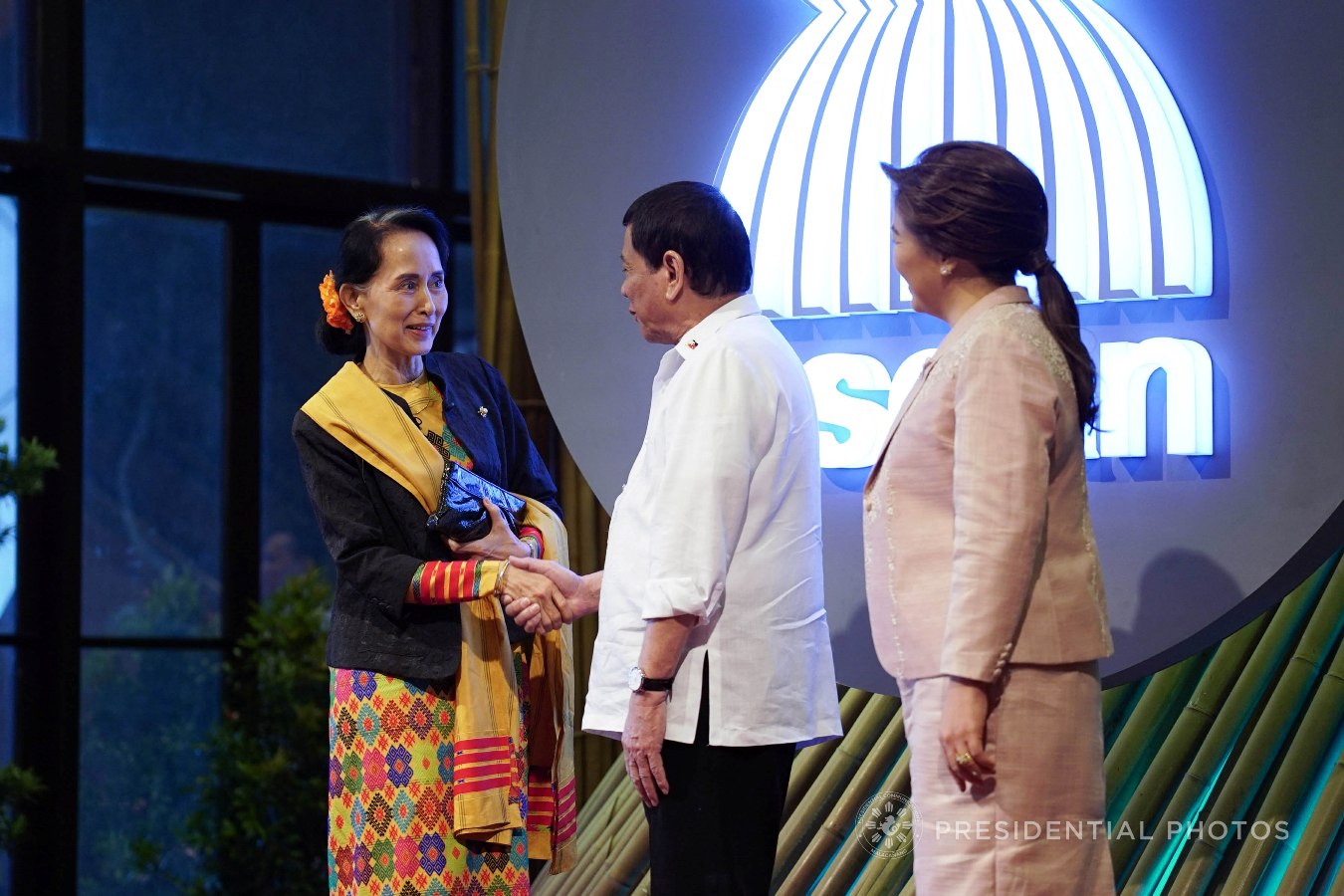Headline
Duterte apologizes to Myanmar leader for his ‘genocide’ remark

FILE: President Rodrigo Roa Duterte and his partner Honeylet welcome Myanmar State Counsellor Daw Aung San Suu Kyi prior to the opening of the 31st Association of Southeast Asian Nations (ASEAN) Summit and Related Summits at the Cultural Center of the Philippines in Pasay City on November 13, 2017. KING RODRIGUEZ/PRESIDENTIAL PHOTO
President Rodrigo Duterte apologized to Myanmar leader Aung San Suu Kyi on Friday, April 13, for saying that “genocide” was taking place in the latter’s country.
In a speech during a Palace event on April 5, Thursday, Duterte said he is willing to accept Rohingya refugees in the Philippines but stressed that Europe should help too.
The Philippine leader’s remark drew criticism from Myanmar’s spokesman, Zaw Htay, who said that Duterte does not know anything about their country and has a tendency to “speak without restraint.”
Addressing Suu Kyi on Friday, The Chief Executive said, “I will apologize to you but if you have noticed, my statement was almost a satire.”
Duterte explained that he was speaking against European countries which accused Myanmar of rampant human rights violations but did little to address the Rohingya crisis.
“Sabi ko (I said), ‘Do you have any plans of providing a safe sanctuary even for a moment for those who are really the victims of war? There’s a civil war going on’ Wala, wala sila (there’s nothing, they have nothing),” Duterte said.
“They keep on criticizing us, Aung [San Suu] Kyi, pati ‘yung iba. Ngayon, bakit sinabi ko ‘yan (even the others. Now, why did I say that)? Madam Chancellor, let me confess to you publicly. I was doing…a very sarcastic [remark],” he added.
The President then turned the tables on international bodies who criticized Suu Kyi over her alleged mishandling of the Rohingya issue.
“Madaldal kayo. O sige. Merong mga tao diyan na wala talagang mapuntahan (You talked too much. There are people who have no place to go). Why don’t you provide the–any relief?” he asked.
“I’m just talking about the human being. If you are really worried to death and keep on attacking [Aung San Suu Kyi] then you provide the relief. Accept the refugees,” he continued.
If other international bodies are willing to accept Rohingya Muslims in their country, Duterte noted that he is ready to accept his share of responsibility in the name of humanity.
According to the United Nations (UN) and rights groups, several 700,000 people, mostly Rohingya, have fled from Myanmar into Bangladesh since August 2016.
The UN and other Western countries said that Myanmar’s action constitutes ethnic cleansing but Myanmar denied it, arguing that its security forces conducted a legitimate counter-insurgency operation against Rohingya militant attacks.





















